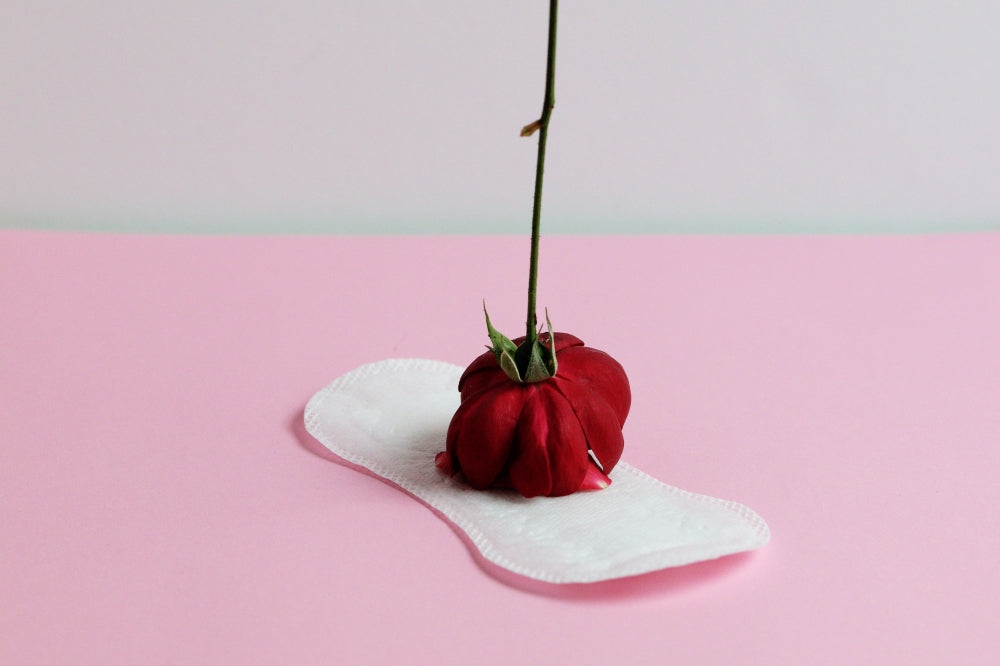How Well Do You Know Your Flow?
The average person who menstruates experiences somewhere around 480 periods throughout their lives — and, yet, research suggests the average menstruator has some glaring gaps of knowledge.
While most of us have been getting our periods since Paris Hilton’s “that’s hot” days, instead of getting into the nitty gritty of our body’s functions we mostly just clutch our period underwear for dear life and wait for it to be over.
And who can blame us? It’s not our fault education surrounding the menstrual cycle is suboptimal at best. Despite our best efforts, period stigma is alive and well — breeding misinformation and obscuring knowledge that should be accessible to all.
Getting to know your flow on a deeper level can be empowering. Whether you’ve been internalizing gut-wrenching period pain as “normal,” or are having trouble discerning what the color of your period blood means, tuning into your period patterns can provide clues into your overall well-being.
With that, we’re diving into some lingering questions that went unanswered in high school health class.
Are Painful Periods Normal?
This is a complicated question — one that often fails to take into consideration the gendered dimensions of pain and, frankly, social tendencies to normalize women’s pain.
Mild discomfort, cramping, fatigue, or bloating is within the usual scope of period annoyances, but intense abdominal pain — especially if it hinders your ability to go about your day-to-day — may be cause for concern.
Severe cramps throughout your period and low-level pain all month long may point to endometriosis, a painful condition in which endometrial tissue grows outside of the uterus. Though there’s no official treatment for the condition, if you’re experiencing painful periods, it’s best to chat potential remedies with your gyno or GP.
My Period Blood Is Brown — What Does it Mean?
While brown-ish colored period blood might seem alarming at first glance, it’s usually nothing to worry about. Period blood turns brown once it’s been oxidized — let’s just chalk it up to… science?
If you generally experience a duller-colored period during the early and late days of your cycle, that’s because older blood is more likely to surface during these phases.
Is it Safe to Go to Bed Wearing a Tampon?

Toxic Shock Syndrome (TSS) is rare, but not worth the risk of sleeping with a tampon, according to doctors. While tampons are technically safe to use for up to eight hours, who wants to wake up panicked from oversleeping?
While the verdict on this is firmly in the “to be avoided” camp, the Super Leakproof Dream Short was created for this very reason — for long, worry-free period sleeps.
What’s Retrograde Menstruation?
If you’ve never heard this term in your life, you’re not alone — even though research suggests it happens to 90% of menstruators. As you know, period blood normally flows through the vagina but, sometimes, (just for fun?) it flows upwards through the fallopian tubes.
While it’s typically not cause for concern, there’s some research to suggest that a buildup of retrograde menstruation can cause endometriosis. But, like so many women’s health related issues, the jury's still out on exactly why it happens in the first place.
How Heavy Is a Heavy Period?

Losing more than a third of a cup of blood over the course of your period is considered heavy bleeding, but if you’re not pulling out your measuring cups to check, that’s the equivalent of consistently soaking through a tampon, pad, or pair of period underwear every hour or so.
We all have heavier days — that’s why we created Super Leakproof Underwear — and, naturally, everyone’s definition of “heavy” is unique. If you experience large blood clots (bigger than a quarter), dizziness, and chronic fatigue, this can point to abnormally heavy bleeding.
Beyond being uncomfortable and difficult to manage, it may be a sign that something’s wrong. If you’re unsure, it might be worth tracking your period flow — and, when in doubt, call up your gyno or GP.
How Many Phases of the Menstrual Cycle Are There?
Despite the vagueness of high school health class, your hormonal cycle is far from static. In constant flux, the menstrual cycle encompasses more than just the week of your period. Rather, it comprises four major episodes: the menstrual, follicular, ovulatory, and luteal phases — each with its own purpose and function.
If you’re feeling extra hungry and grumpy, you’re likely in your luteal phase — also known as PMS. Whereas the follicular and ovulatory phases are usually characterized by an uptick in energy levels and feel-good hormones.
Does My Flow Sync Up With Friends?
As much as we desperately want this myth to be true, evidence to support this theory is mostly anecdotal. Though research into menstrual synchrony was hot in the 70s, in the decades since it’s been largely disproven.
If your period syncs up with your sister or roomie, it’s likely merely the result of chance and probability — but don’t let that stop you from leaning into the magic of this unifying phenomenon.
How Long Should My Period Last?
Just as period heaviness and flow varies from person to person, so does the length of your period. Most people who menstruate have their period for four to five days, but it could be slightly shorter or longer in duration depending on your natural rhythm.
If your period tends to overstay its welcome on a regular basis, it could be worth bringing up to your GP or gyno.
—
We hope you found this post informative — but remember: we’re not doctors and this post is not medical advice! While all posts are fact-checked and well researched, we always recommend you chat with your doctor about any questions or concerns you might have regarding a medical condition. We’re here to support and educate, but never with the aim of disregarding professional medical advice you’ve been given. Phew, now that that’s out of the way, you can go on living unapologetically free.












